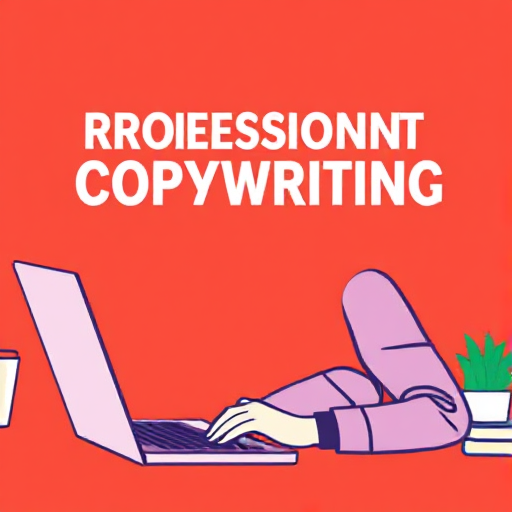Professional Copywriting for Marketing Campaigns

Effective communication is essential to capture audience attention, inspire action, and drive results. At the heart of this communication lies professional copywriting—the art and science of crafting compelling and persuasive text for marketing campaigns. Whether you’re promoting a product, service, or brand, high-quality copywriting is a powerful tool for achieving your marketing goals.
What is Professional Copywriting?
Professional copywriting is the process of creating written content designed to persuade, inform, and engage a target audience. It involves crafting messages that align with a brand’s voice and resonate with its audience, ultimately encouraging specific actions such as making a purchase, subscribing to a service, or attending an event.
Unlike general writing, copywriting is purpose-driven and focuses on achieving measurable objectives. Copywriters leverage their understanding of psychology, marketing principles, and audience behavior to craft text that drives results.
The Role of Copywriting in Marketing Campaigns
In marketing campaigns, copywriting serves as the cornerstone of communication. Whether it’s a slogan, website content, email, social media post, or advertisement, the written word is often the first point of contact between a brand and its audience. Here are key roles that copywriting plays in marketing campaigns:
- Creating Brand Awareness: Compelling copy helps introduce a brand to new audiences and establishes a memorable identity. A well-crafted tagline or headline can capture attention and set the tone for the entire campaign.
- Conveying Value Propositions: Copywriting highlights the unique selling points (USPs) of a product or service, helping audiences understand why they should choose your brand over competitors.
- Building Emotional Connections: Emotionally driven copy resonates with audiences, fostering a sense of trust and loyalty. Whether it’s humor, inspiration, or empathy, the right tone can make all the difference.
- Driving Conversions: Ultimately, the goal of copywriting is to inspire action. Clear calls to action (CTAs) guide audiences toward the next step, whether that’s clicking a link, filling out a form, or making a purchase.
Key Elements of Effective Copywriting
- Understanding the Target Audience: Great copy begins with a deep understanding of the audience. This includes demographics, preferences, pain points, and motivations. By addressing the audience’s needs and desires, copywriters can create messages that resonate.
- Clarity and Simplicity: Effective copy is clear, concise, and easy to understand. It avoids jargon and communicates ideas in a straightforward manner.
- Persuasive Techniques: Copywriters use proven psychological principles to persuade audiences. These include:
- Social Proof: Highlighting testimonials, reviews, and case studies.
- Scarcity and Urgency: Creating a sense of limited availability or time-sensitive offers.
- Authority: Establishing credibility through expertise, certifications, or endorsements.
- Strong Headlines: The headline is often the first thing an audience sees. A strong headline grabs attention, sparks curiosity, and encourages further reading.
- Engaging Tone and Voice: The tone of the copy should align with the brand’s identity and appeal to the target audience. Whether it’s professional, friendly, or quirky, consistency is key.
- Call to Action (CTA): Every piece of copy should include a clear and compelling CTA. Phrases like “Sign up now,” “Get started today,” or “Learn more” guide audiences toward the desired action.
Types of Copywriting in Marketing Campaigns
Copywriting takes many forms, depending on the medium and objectives of the campaign. Some common types include:
- Advertising Copy: Short and impactful, advertising copy is designed to grab attention and convey key messages quickly. This includes print ads, online banners, and video scripts.
- Content Marketing Copy: Blog posts, articles, and eBooks provide valuable information while subtly promoting a brand. This type of copy builds authority and nurtures leads over time.
- Social Media Copy: Social media platforms require concise and engaging copy tailored to specific audiences. Posts, captions, and ads often include hashtags and interactive elements to boost engagement.
- Email Marketing Copy: Emails are a direct and personal way to communicate with audiences. Effective email copy includes attention-grabbing subject lines, personalized messages, and persuasive CTAs.
- Website Copy: From homepage headlines to product descriptions, website copy is crucial for creating a seamless user experience and guiding visitors toward conversion points.
- SEO Copywriting: Search engine optimization (SEO) copywriting focuses on creating content that ranks well in search engines while providing value to readers. This includes keyword integration and user-focused content.
Tips for Successful Copywriting
- Research Thoroughly: Understand your audience, industry, and competitors. The more informed you are, the more effective your copy will be.
- Focus on Benefits: Highlight how your product or service solves problems or improves the audience’s life. Benefits resonate more than features.
- Test and Optimize: Experiment with different headlines, CTAs, and formats to see what works best. Use analytics and feedback to refine your approach.
- Stay Authentic: Authenticity builds trust. Ensure your copy aligns with your brand values and delivers on its promises.
- Keep it Conversational: Write as if you’re speaking directly to your audience. A friendly and relatable tone can make your message more engaging.
The Importance of Hiring a Professional Copywriter
While anyone can write, professional copywriters bring expertise and experience that can elevate your marketing campaigns. They understand how to:
- Craft messages that align with your brand’s voice and goals.
- Write persuasively without being pushy.
- Adapt to various formats and platforms.
- Use analytics and data to inform their strategies.
Hiring a professional copywriter ensures that your campaigns are not only creative but also strategic and results-driven.
Professional copywriting is a vital component of successful marketing campaigns. It bridges the gap between brands and their audiences, delivering messages that inspire action and drive results. By investing in high-quality copy, businesses can enhance their brand presence, connect with their audience, and achieve their marketing objectives. Whether you’re launching a new product, running an ad campaign, or building your online presence, professional copywriting is the key to making your message stand out.






